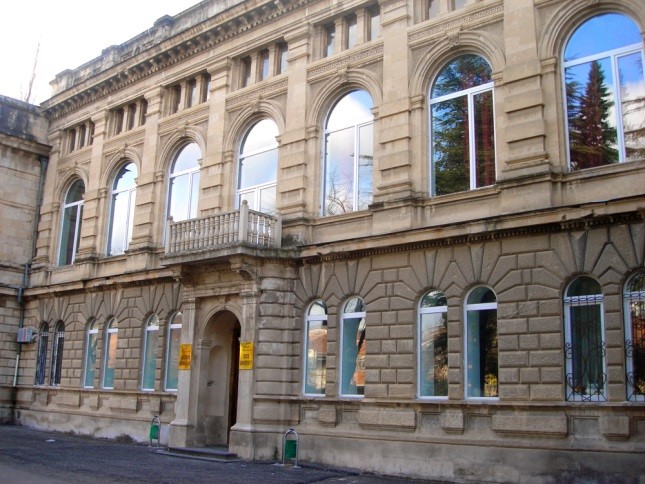One-step Medical Education Program

Program description:
Program aims at preparing the specialist with medical academic degree, having sufficient knowledge of basic medical disciplines and general clinical skills needed for working at medical institutions, also using and preserving moral values and ethical principles in practice.
Program objective is organizing learning process for the students so that it enables them:
- With the acquisition of the basic courses of the major specialty;
- With the acquisition of obligatory and optional courses provided by the curriculum;
- General clinical skills;
- Ability of critical assessment of scientific and clinical innovations and their use in clinical decision making;
- Acquiring written and verbal communicative skills;
- Knowledge of minimum one foreign language at B2 level;
- Knowledge in basics of healthcare legislation and their application in practice;
- Understanding of continuous medical education and professional development.
Program enables the students to have deep understanding of fundamental medical disciplines, academic and professional skills and accordingly provides basic theoretical and practical knowledge needed for a competitive specialist in the labor market.
Actuality of the program:
Healthcare of the population is one of the most important issues and simultaneously huge attention is paid to preparing the professionals who solve the problems related to health. Nowadays learning outcome-oriented education is considered the best model as it is based on international standards of medical education and accordingly it is actual to design and implement the program, which provides successful, competitive specialist.
Learning Outcomes: After completing one-step Medical Education Program the clinician will be able to formulate following Competencies:
Knowledge and Understanding:
- Thorough and systemic knowledge of clinical, behavioral and social sciences, indispensable for medical practice;
- Knowledge of major groups of medicines, their effects and the principles of their prescriptions according to pathology and diseases;
- Thorough knowledge of the healthcare system and acknowledges the role of the doctor in it;
- Knowledge of ethic and legislative principles;
- Acknowledgment of the ways of solving complex clinical problems
Ability to use the knowledge in practice:
- According to the acquired knowledge the clinician can identify clinical cases, urgent cases among them, evaluate, diagnose, and connect corresponding medical treatments and medicines with the clinical context, evaluate potential risks and benefits;
- The clinician is able to prescribe the medicines correctly and to take into consideration correlation of the medicines while treatment;
- The clinician is able to evaluate the social and psychological factors affecting the patients (alcohol, drag addiction, disease related stress)
- The clinician is able to manipulate practical procedures according to acquired knowledge;
- The clinician is able to work in multidisciplinary group as a leader and as a member, he/she can define the objectives, cooperate with the members of the group, coordinate and adequately evaluate the possibilities of the group members, avoid conflict situations;
- The clinician is able to take part in healthcare events;
- The clinician is able to integrate biomedical principles, methodology and knowledge in practice and research.


